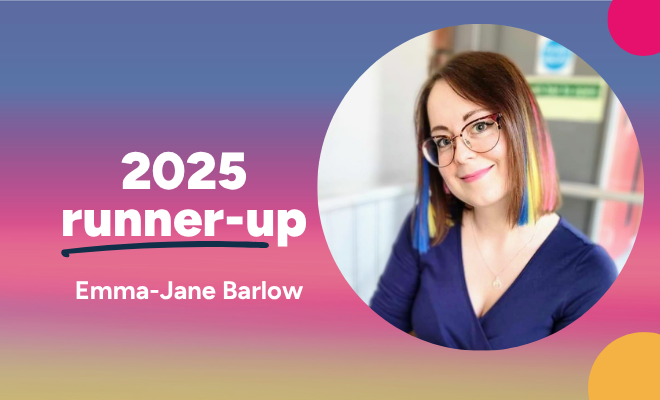Named as a runner-up in the Happiful Poetry Prize 2025, Emma-Jane Barlow reflects on how she wrote her shortlisted poem
‘Where The Light Gets In’ by Emma-Jane Barlow was named as one of the shortlisted poems in the Happiful Poetry Prize 2025. Here, Emma-Jane reflects on how nature inspires her work as well as providing practical tips for budding poets.
What drew you to enter the Happiful Poetry Prize?
I've been editing and submitting poems for individual publication for about 18 months now. When I came across the Happiful Poetry Prize, I immediately thought of a poem that felt like the perfect fit.
As a dedicated reader of Happiful, I wanted to contribute something that captures the spirit of happiness and hope that the publication radiates, while also honouring the deeper themes of mental health, wellbeing, and the healing journey.
Nature has always been a motif in my work, as well as glimpses of hope, even in the most vulnerable pieces I write
I wrote 'When The Light Gets In' with universal themes in mind, using the natural world, such as the sea, sky, and stars as metaphors for resilience and growth. I believe nature holds the wisdom we often seek, and sometimes, all we need is to stay open to its messages.
Could you tell us a little about the poem you submitted?
It was inspired by my own journey through grief, pain, and depression. It reflects the heavy moments in life when darkness feels suffocating, but also you feel the undeniable truth that even in the deepest despair, there is always a glimmer of light that can carry you forward towards hope.
In writing the poem, I wanted to use metaphors that reflect the emotional desolation I’ve experienced, while weaving in a subtle spiritual undertone. I hope that it offers comfort to readers, reminding them that the universe holds a quiet and guiding kindness, even when everything feels lost. 'Where The Light Gets In' is ultimately a reflection on resilience and a reminder that healing is always possible – even in life’s most difficult moments.
When writing poetry, where do you find your inspiration?
I find my inspiration in everything. From the world around me to my most personal life experiences. I have been writing poetry since I was seven years old; it's how I process my emotions, understand the world, and reflect on my experiences.
That's the beautiful thing about writing poetry that it never stops being magical or exciting
Nature has always been a motif in my work, as well as glimpses of hope, even in the most vulnerable pieces I write. I am quite often inspired by music, too. I have written a few poetry series inspired by lyrics. I'm also a songwriter, so I find that poetry and music are linked for me.
How do you approach writing a new poem?
The approach is different every time. I can be inspired anywhere, at any time, and the muse never strikes in the same way twice. Sometimes I write down a word, a title idea, or a first line and come back to it and write the poem later. Other times, I can write a complete piece in a matter of minutes, like a long stream of consciousness. That's the beautiful thing about writing poetry that it never stops being magical or exciting for me.
What advice would you give to aspiring poets?
- My advice for any writer is that you only get better at writing by writing.
- Read, read, and read some more. Don't just stick to one genre; read outside of your comfort zone. Specifically for aspiring poets, I think there is often a preconceived idea that people have about poetry and what it 'should' be.
- Begin by writing your truth, the honest words in your heart and write without judgement.
- Learn the craft, good technique, and have a varied skillset – but what's even more important is that you are showing who you are. Poetry is a deeply personal art form and it's what makes it different from other forms of writing. Good poetry creates an image, but great poetry stirs something in the reader that leaves a lasting effect.
Learn more about Emma-Jane Barlow.
Read last year's winning poems here.


Comments